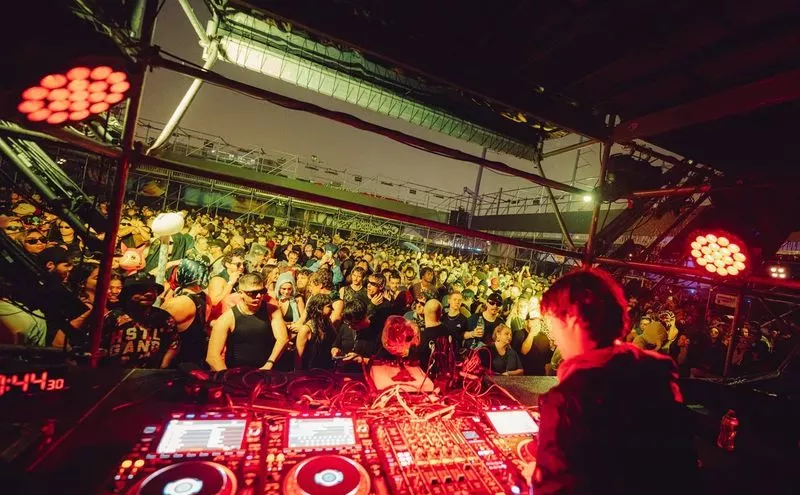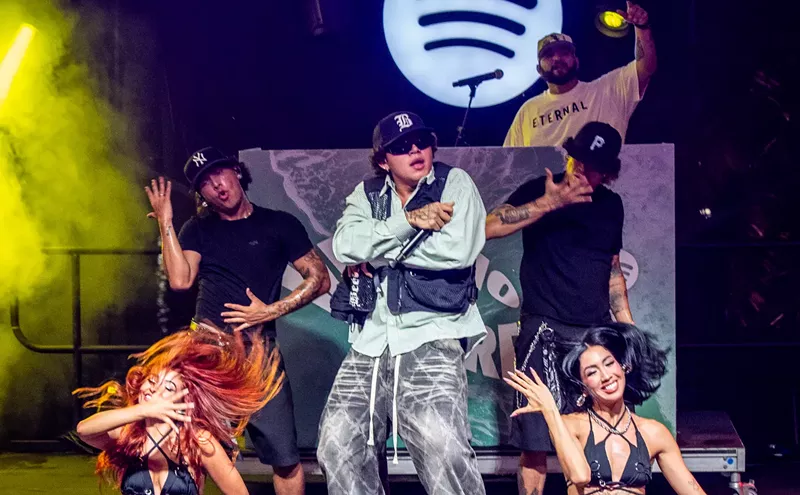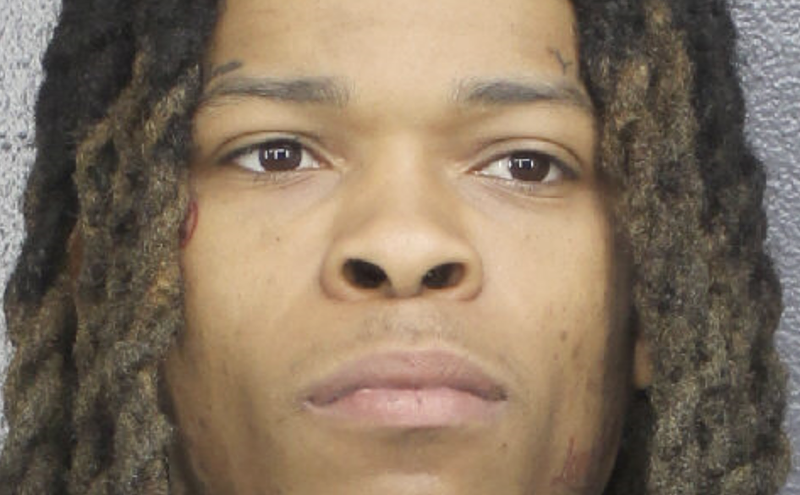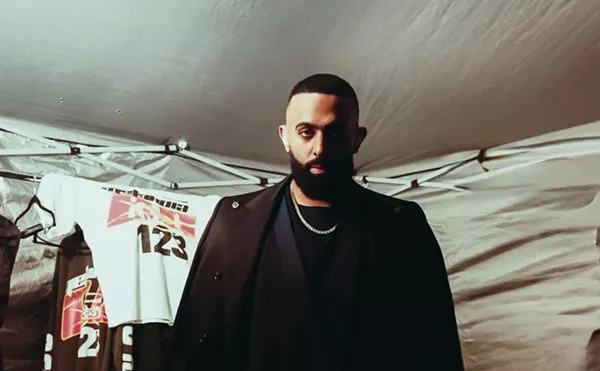It takes more than a phone call to get Raymond Ayala on the other end of the line. He is a busy man whose hectic agenda allows him only about three hours of sleep per day. Last February 24 he was the talk of the town after winning the Album of the Year award for his 2004 gold disc, Barrio Fino (Refined Neighborhood), during Univision's Premio Lo Nuestro Latin Music Awards at American Airlines Arena. Flying over the audience while sitting on a low rider, Daddy Yankee, born 28 years ago in Rio Piedras, Puerto Rico, charged ahead with "Gasolina," the song that put his name on the charts.
"I wasn't afraid of falling over the audience," he laughs. "I was a little tense, yes, but just because there was too much adrenaline around. I was pretty confident about what we had to offer, we were bringing something real to a mainstream show, and I know we had an impact on the audience." To him, the award for Barrio Fino is a big step for his career, representing an open door for many talented Latin street kids who, as he was back in 1990, are waiting to be discovered.
As a reggaeton pioneer with three U.S. studio albums (2002's Changri.com, 2003's Los Homerun, and Barrio Fino) to his credit, Daddy Yankee is the hottest Latin import since Juanes two years ago. Not necessarily aware of the struggle Spanish-speaking Puerto Rican MCs such as Vico C, El General, and Tego Calderon had to go through in the late Nineties when they first started mixing rap and hip-hop with salsa and dancehall, all kinds of American Latinos are buying reggaeton, the Caribbean hybrid that is slowly creeping into the pop charts. It is, of course, a sign of their growing power.
Daddy Yankee firmly believes that it's not that important to sing in English to cross over. "There are millions of Latinos that should feel proud of being Latinos, and look for the real thing in the store. We need them to leave their house and to identify with the many urban artists that are coming out right now. We are their reflection," he remarks, referring to the millions of Latinos in the country that could go out and buy his album and contribute to what he calls "a revolution."
As the reggaeton rhythm has spread as quickly as the lambada in the early Nineties, it has been scrutinized and criticized by older Caribbeans. It was even discussed in the Puerto Rican Senate. In 2001, now-retired Sen. Velda Gonzalez denounced the lyrics and the accompanying videos as "derogatory" to women, who were often shown -- in true hip-hop fashion -- scantily dressed. Daddy Yankee, who was also reproached back then for a track called "Latigazo" ("Lash") on which he sang, "Hit her!/Lash her!/On the dance floor/I'm going to hit her!/Hit her!" is now socially accepted, while the doggy-style dance (el perreo) that illustrates reggaeton fever has become trendy, with Latin teenagers rubbing their bodies in clubs all over the continent. It wasn't like that five years ago.
"What I remember from that time is that many people tried to stop us," recalls Daddy Yankee. "As a pioneer I think I can talk about that, about how the government tried to stop us, about how people from other social extractions criticized us and had a hard time understanding us, people that looked over their shoulders at young people from the barrios, underestimating and seeing us as outcasts." To him, reggaeton artists are not being derogatory toward women, as they represent, according to his account, "the majority of reggaeton music consumers." The statistic makes him wonder, How can we be such a negative influence?
Most of Daddy Yankee's songs are about women, including "Gasolina," a song that talks about a girl who loves to party all night long. He says the hit single is a reflection of his love for clubbing. But he also addresses social concerns in some of his kilometric lyrics. For instance, on "Corazones" ("Hearts") from Barrio Fino, he says, "I'm from the crime capital/And the air smells like death that eats everything that lives/If it was up to me/I would reunite every gang in the name of the fearless people that have fallen/I am a valiant man who's just asking you to stop spilling innocent blood."
Some of these stories will inform Straight from the Barrio, a movie scheduled for release at the end of the year that will include Daddy Yankee as the main character. "I'll be shooting this month in Puerto Rico, and we want to portray a kid from the hood and all of his surroundings, such as sports, drugs, death, and marginal life," he says. "I know a lot of Latinos are going to identify with the story, because many of us come from down there, and we have been fighting against all odds. Maybe some of the scenarios are different, or the countries are different, but the situations are always the same." Then there's Ahora le Toca Al Cangri: Live, which was recorded last December at a 20,000-seat auditorium in Puerto Rico and drops on March 15; and a new album tentatively titled Daddy Yankee, The Cartel that will come out around the time the movie hits theaters.
After naming Miami the second American capital of reggaeton, not far from the enthusiastic Puerto Rican community in New York, he says that despite gossip, he doesn't have any beef with Nikki Jam and Don Omar. All three are on the bill for Reggaetonzol 2005, a massive concert sponsored by Miami Latin station El Zol (WXDJ-FM 95.7). "Gossip is also a marketing tool, but I don't pay attention to it. I know that I respect many colleagues the same way they respect me," says Daddy Yankee. "I don't feel better than anybody, we're all the same, we're all coming from the same place."












